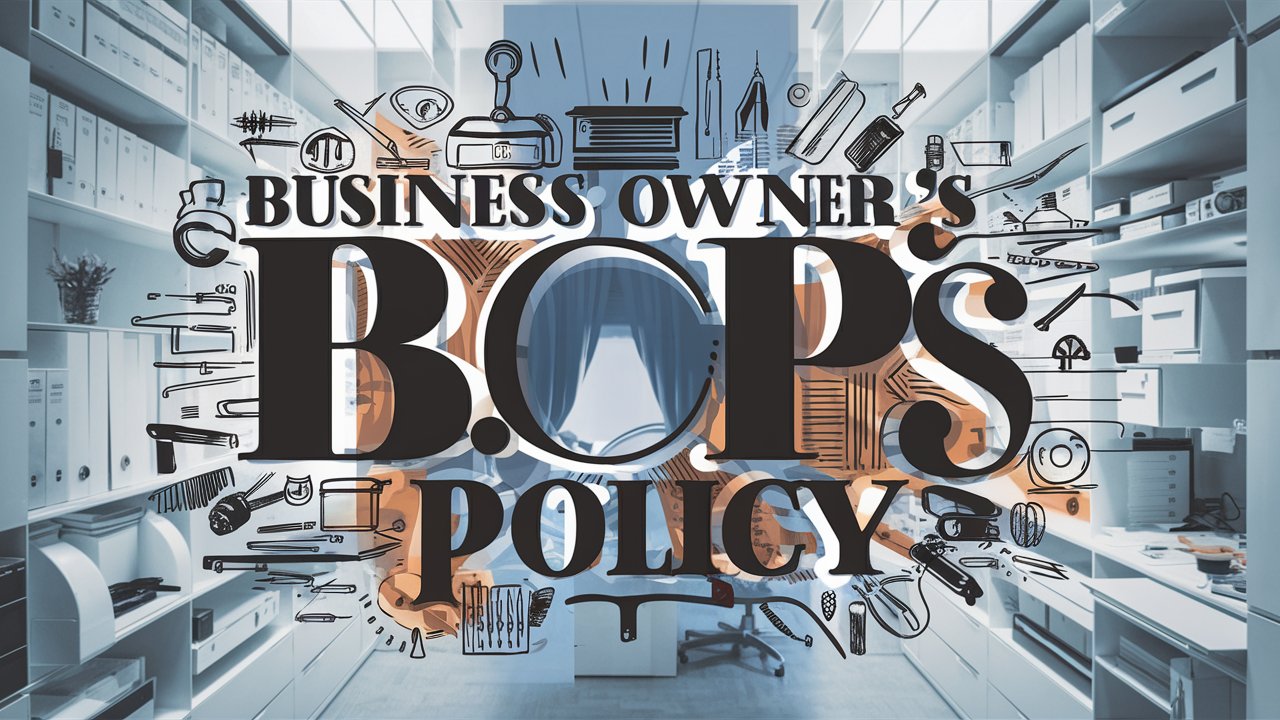Introduction
Starting and running a business in Utah can be a rewarding endeavor, given the state’s robust economy, favorable tax policies, and business-friendly environment. However, with these opportunities come various risks that can potentially derail your business operations. Business insurance is a crucial component in safeguarding your business against unforeseen events, liabilities, and financial losses. This comprehensive guide will walk you through everything you need to know about business insurance in Utah, including the types of coverage available, legal requirements, and tips for choosing the right policy for your business.
Understanding Business Insurance
Business insurance is a broad term that encompasses various types of coverage designed to protect a business from potential risks and liabilities. These can include property damage, legal liability, employee-related risks, and more. The goal of business insurance is to help business owners mitigate financial losses and ensure continuity in the face of unexpected events.
Types of Business Insurance
- General Liability Insurance
This is a fundamental coverage that every business should consider. It protects against claims of bodily injury, property damage, and personal injury (like slander or libel) that your business operations might cause to others.
- Commercial Property Insurance
This insurance covers the physical assets of your business, such as buildings, equipment, inventory, and furniture. It protects against risks like fire, theft, vandalism, and natural disasters.
- Workers’ Compensation Insurance
Mandatory in Utah for most businesses with employees, this insurance provides coverage for medical expenses and lost wages for employees who are injured or become ill due to their job.
- Professional Liability Insurance (Errors & Omissions Insurance)
This coverage is essential for businesses that provide professional services. It protects against claims of negligence, errors, or omissions in the services provided.
- Commercial Auto Insurance
If your business uses vehicles for operations, commercial auto insurance is necessary. It covers liability and physical damage for business-owned vehicles.
- Business Interruption Insurance
Also known as business income insurance, this coverage helps replace lost income and pay for extra expenses if your business is disrupted due to a covered event, like a fire or natural disaster.

- Cyber Liability Insurance
In today’s digital age, this insurance protects businesses against data breaches, cyber-attacks, and other cyber-related risks.
- Product Liability Insurance
If your business manufactures or sells products, this coverage protects against claims of injury or damage caused by those products.
- Employment Practices Liability Insurance (EPLI)
This insurance protects against claims made by employees regarding wrongful termination, discrimination, harassment, and other employment-related issues.
- Directors and Officers Insurance (D&O)
This coverage protects the personal assets of your company’s directors and officers in the event they are personally sued for wrongful acts in managing the company.
Legal Requirements for Business Insurance in Utah
While not all types of business insurance are required by law, certain coverages are mandatory in Utah
Workers’ Compensation Insurance
In Utah, businesses with one or more employees, including part-time workers, must carry workers’ compensation insurance. This insurance provides benefits to employees who suffer job-related injuries or illnesses, covering medical expenses and lost wages. Failing to obtain workers’ compensation coverage can result in significant penalties and fines.
Commercial Auto Insurance
If your business owns vehicles, you must have commercial auto insurance. Utah law requires that commercial auto policies include liability coverage to pay for bodily injury and property damage caused by an accident involving a business vehicle.
Professional Liability Insurance for Certain Professions
Certain professions, such as healthcare providers and legal practitioners, may be required by their respective licensing boards to carry professional liability insurance. This requirement ensures that professionals can cover the costs of potential malpractice claims.
Certificate of Insurance
Many clients and business partners may require proof of insurance before entering into contracts or agreements with your business. A Certificate of Insurance (COI) is a document that verifies the existence of your insurance policies and their coverage limits.
Assessing Your Business Insurance Needs
Determining the right types and amounts of insurance coverage for your business involves assessing the specific risks associated with your industry, operations, and location. Here are some steps to help you evaluate your business insurance needs
Identify Potential Risks
Start by identifying the various risks your business might face. Consider the following factors
- Industry-specific risks
Different industries face different risks. For example, a construction company faces higher physical injury risks compared to a marketing consultancy, which might be more prone to errors and omissions claims.
- Location
Your business location can affect your insurance needs. For instance, a business in an area prone to natural disasters like earthquakes or floods will need specific coverage for these risks.
- Business operations
Evaluate the nature of your business operations. If you handle sensitive customer data, you may need cyber liability insurance. If you have a physical store, general liability and commercial property insurance are essential.
Evaluate Your Assets
Take stock of your business assets, including buildings, equipment, inventory, and intellectual property. Determine their value to ensure you have adequate coverage to protect them in case of loss or damage.
Consider Legal Requirements
Ensure you comply with Utah’s legal requirements for business insurance. This includes obtaining mandatory coverages like workers’ compensation and commercial auto insurance if applicable.
Assess Your Financial Situation
Analyze your business’s financial health and capacity to handle potential risks. Consider how much you can afford to pay out-of-pocket in case of an unexpected event versus the cost of insurance premiums.
Choosing the Right Insurance Provider
Selecting the right insurance provider is as crucial as choosing the right types of coverage. Here are some tips for finding a reliable insurance company in Utah:
Research and Compare
Start by researching various insurance providers and comparing their offerings. Look for companies with strong financial stability, positive customer reviews, and a good track record in handling claims.
Seek Recommendations
Ask for recommendations from other business owners in your industry or professional associations. Personal referrals can provide valuable insights into the reliability and customer service of an insurance provider.

Work with an Insurance Broker
Consider working with an insurance broker who specializes in business insurance. Brokers can help you navigate the complexities of insurance policies, compare quotes from multiple providers, and find the best coverage for your needs.
Check Licensing and Accreditation
Ensure that the insurance provider is licensed to operate in Utah. You can verify the licensing status of an insurance company through the Utah Insurance Department. Additionally, check if the provider is accredited by reputable industry organizations.
Review Policy Terms and Conditions
Carefully review the terms and conditions of the insurance policies you are considering. Pay attention to coverage limits, exclusions, deductibles, and any additional endorsements that may be required.
Tips for Managing Your Business Insurance
Once you have secured the necessary insurance coverage for your business, it’s important to manage it effectively to ensure continuous protection and compliance. Here are some tips for managing your business insurance.
Regularly Review and Update Your Policies
As your business grows and evolves, so do your insurance needs. Regularly review your insurance policies to ensure they still provide adequate coverage. Update your policies whenever you make significant changes to your business operations, such as expanding your services, relocating, or purchasing new equipment.
Maintain Accurate Records
Keep detailed and accurate records of your insurance policies, including policy numbers, coverage details, and contact information for your insurance provider. This documentation is essential in case you need to file a claim or review your coverage.
Implement Risk Management Practices
Proactively manage risks within your business to minimize the likelihood of incidents that could lead to insurance claims. Implement safety protocols, conduct regular training for employees, and maintain a secure IT infrastructure to protect against cyber threats.
Understand Your Coverage Limits
Be aware of the coverage limits and exclusions of your insurance policies. Understanding what is covered and what is not will help you avoid unpleasant surprises in the event of a claim.
Communicate with Your Insurance Provider
Maintain open communication with your insurance provider. Notify them of any changes to your business operations, ask questions about your coverage, and seek advice on managing risks effectively.

Consider Additional Coverage as Needed
As your business grows, you may need additional coverage to protect new assets or address emerging risks. Periodically assess your insurance needs and consider adding endorsements or purchasing additional policies as necessary.
Common Challenges and Solutions in Business Insurance in Utah
Despite the benefits of business insurance, obtaining and managing coverage can present certain challenges. Here are some common challenges businesses face and solutions to overcome them.
High Premium Costs
Insurance premiums can be a significant expense for small businesses. To manage costs
- Bundle policies
Many insurance providers offer discounts if you purchase multiple types of coverage from them.
- Increase deductibles
Opting for a higher deductible can lower your premium, but ensure you can afford the out-of-pocket expense in case of a claim.
- Implement risk management
Reducing your risk exposure through safety measures and protocols can lead to lower premiums.
Understanding Policy Terms
Insurance policies can be complex and filled with legal jargon. To better understand your coverage
- Consult with your broker
An insurance broker can explain policy terms and help you understand what is covered and what is not.
- Ask questions
Don’t hesitate to ask your insurance provider for clarification on any confusing terms or conditions.
- Read thoroughly
Take the time to read your policy documents carefully to ensure you know the details of your coverage.
Claim Denials
Claims can be denied for various reasons, including lack of coverage, missed deadlines, or incomplete documentation. To avoid claim denials
- File promptly
Report incidents and file claims as soon as possible to meet any deadlines.
- Provide complete documentation
Ensure you submit all required documents and information when filing a claim.
- Understand your policy
Know your coverage limits and exclusions to avoid filing claims for incidents not covered by your policy.
Keeping Coverage Up-to-Date
As your business changes, so do your insurance needs. To keep your coverage current
- Schedule regular reviews
Set reminders to review your insurance policies annually or whenever significant changes occur in your business.
- Update your provider
Inform your insurance provider of any changes to your business operations, such as new locations, services, or equipment.
- Case Study
Business Insurance in Action
To illustrate the importance and effectiveness of business insurance, consider the following case study of a small business in Utah
The Scenario
Jane owns a small bakery in Salt Lake City, Utah. She has a team of five employees and operates out of a rented commercial space. Jane has general liability insurance, commercial property insurance, and workers’ compensation insurance for her business.
The Incident
One winter, a heavy snowstorm caused the roof of Jane’s bakery to collapse, resulting in significant damage to the building and equipment. Fortunately, no employees were injured, but the bakery had to close for repairs, leading to a loss of income.
The Resolution
Jane promptly filed a claim with her commercial property insurance provider. The insurance covered the cost of repairing the roof and replacing damaged equipment. Additionally, because Jane had business interruption insurance as part of her policy, she received compensation for the income lost during the closure. Thanks to her comprehensive insurance coverage, Jane was able to reopen her bakery without suffering a major financial setback.
Conclusion
Business insurance is an essential component of running a successful business in Utah. It provides protection against a wide range of risks and ensures that your business can recover and continue operations in the face of unexpected events. By understanding the types of coverage available, assessing your business’s unique risks, and choosing a reliable insurance provider, you can secure the financial stability and longevity of your business.
Regularly reviewing and updating your insurance policies, implementing risk management practices, and maintaining open communication with your insurance provider are key to effectively managing your business insurance. With the right coverage in place, you can focus on growing your business and achieving your entrepreneurial goals, confident in the knowledge that you are protected against potential financial losses.
For more details please visit our home page: Click Here

